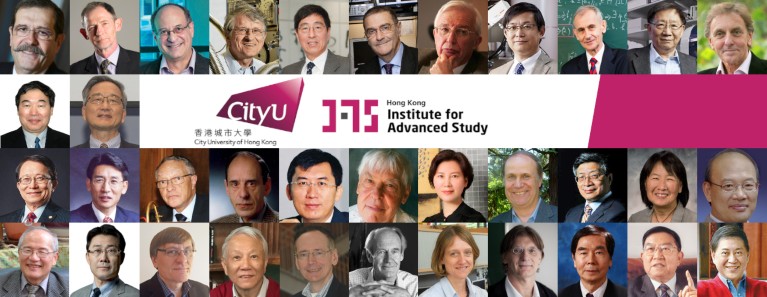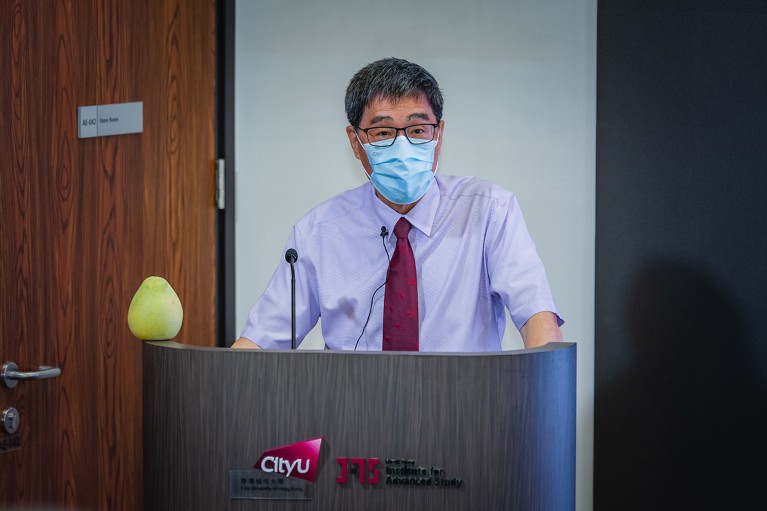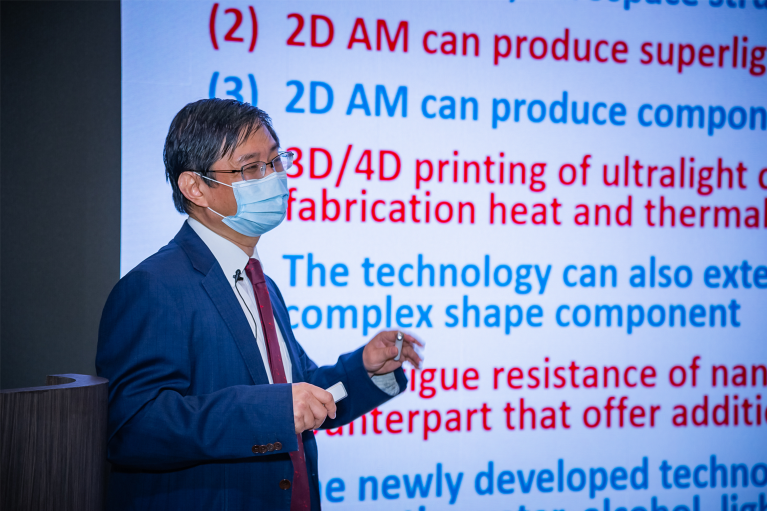
Credit: Hong Kong Institute for Advanced Study, City University of Hong Kong
For global crises like the COVID-19 pandemic, early simulations of possible scenarios are essential, and demand the latest data science tools. In the first talk of the new academic year for the Hong Kong Institute for Advanced Study (HKIAS) Distinguished Lecture series, Way Kuo, the president and university distinguished professor of City University of Hong Kong (CityU), and a senior fellow of HKIAS, explored how data science can be harnessed to improve global pandemic management. The talk demonstrates the commitment of HKIAS to promote the role of science in addressing broader societal issues.

On 30 September 2020, Way Kuo gave a talk titled ‘Data-Driven Global Pandemic Management’.Credit: Hong Kong Institute for Advanced Study, City University of Hong Kong
A renowned expert on system reliability for electronics and energy design, Kuo was the first overseas expert invited to Japan to assess the Fukushima Power Plant after the earthquakes. In his talk, Kuo drew parallels between the 2011 Tohoku earthquake and the recent pandemic to illustrate expected losses, and the C3I principle (Command, Control, Communications, and Information) for disaster management.
Transparent communications and reporting in surveillance-response systems have proved crucial for avoiding uninformed or delayed decisions, Kuo noted. “As well as timely data-driven simulations of possible scenarios to minimize losses, we should deploy a high-level emergency response unit globally for rapid decision-making, gathering subject experts from engineering, infectious diseases, behavioural science, and public health.” Concerted international efforts are invaluable, he said.

On 6 October 2020, Jian Lu gave a talk titled ‘Progress in Additive Manufacturing: From 2D Printing to 4D Printing of Structural Materials and Functional Devices’.Credit: Hong Kong Institute for Advanced Study, City University of Hong Kong
Other high-impact research featured in the lecture series was introduced by Jian Lu, chair professor of Mechanical Engineering at CityU and a senior fellow of HKIAS. He discussed research progress in additive manufacturing, a fast-growing technology with broad applications. In addressing the challenge of achieving complex-shaped architectures in ceramics and some alloys, Lu turned to 4D printing, which combines traditional 3D printing with structural deformation mechanism. “It’s 3D printing — plus programmable capability to change shape, brightness or shape,” said Lu.
Lu outlined the concepts of supra-nanostructured and nanostructured dual-phase (glass-nanocrystal) alloy composites, which have high strength and deformation capacity. 4D printing enables more complex shapes to be created. Particularly, for ceramic precursors that are typically rigid and difficult to deform, Lu’s team developed new, stretchable ceramic precursors that can be 4D-printed with great flexibility. “Printing with elastomer-derived ceramics can overcome shortcomings of traditional ceramics, adapting to hostile environments, including extreme temperatures in outer space,” said Lu.
Promoting scientific exchanges
Supported in part by the Kwang Hua Educational Foundation, the lecture series encapsulates HKIAS’s goals to push the boundaries of knowledge through interdisciplinary collaboration. Driving multidisciplinary endeavours has been crucial for HKIAS. Apart from providing a platform for idea exchange, the institute also hope to foster new collaborations and research projects.
Launched at CityU in 2015 to contribute to solving pressing problems through research, HKIAS has witnessed significant growth. It has become a dynamic centre of scientific advancement for a multidisciplinary team of world-renowned scholars that is still expanding.
While this was the first time for HKIAS to conduct lectures online, the format has proved popular, with almost 400 online participants for Kuo’s lecture. HKIAS senior fellows will continue sharing their latest research findings across interactive digital channels, engaging broader audiences in real time, and leveraging the creativity of its global community of scholars.



 New frontiers in neuroscience
New frontiers in neuroscience
 Collaborating across borders and disciplines
Collaborating across borders and disciplines
 A dynamic centre of advancement
A dynamic centre of advancement
 Making Hong Kong a hub for science and technology innovation
Making Hong Kong a hub for science and technology innovation